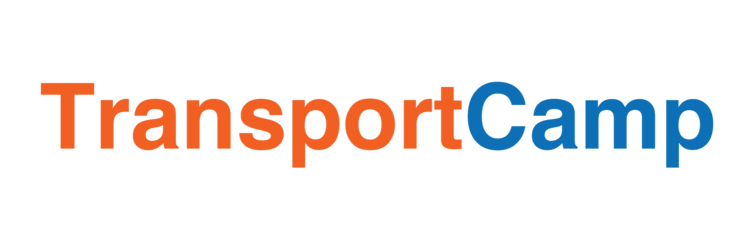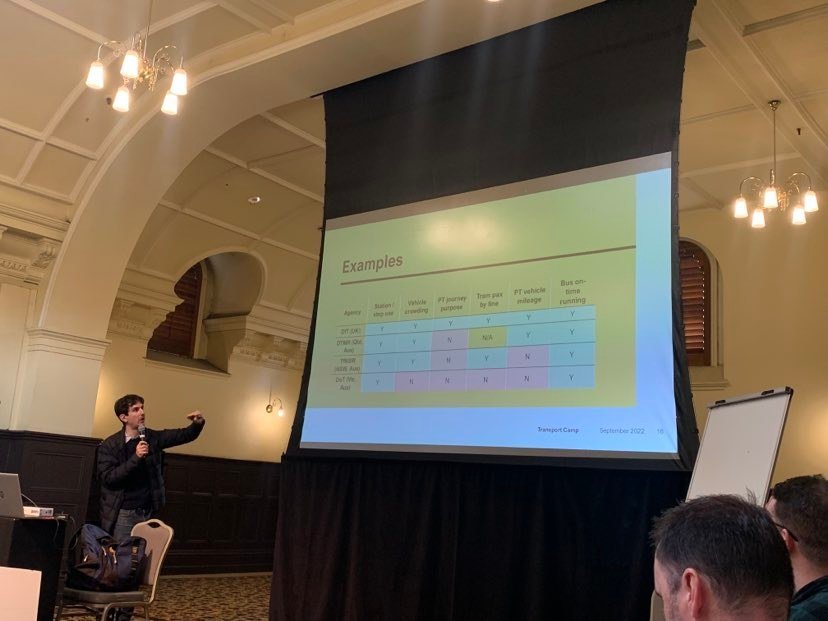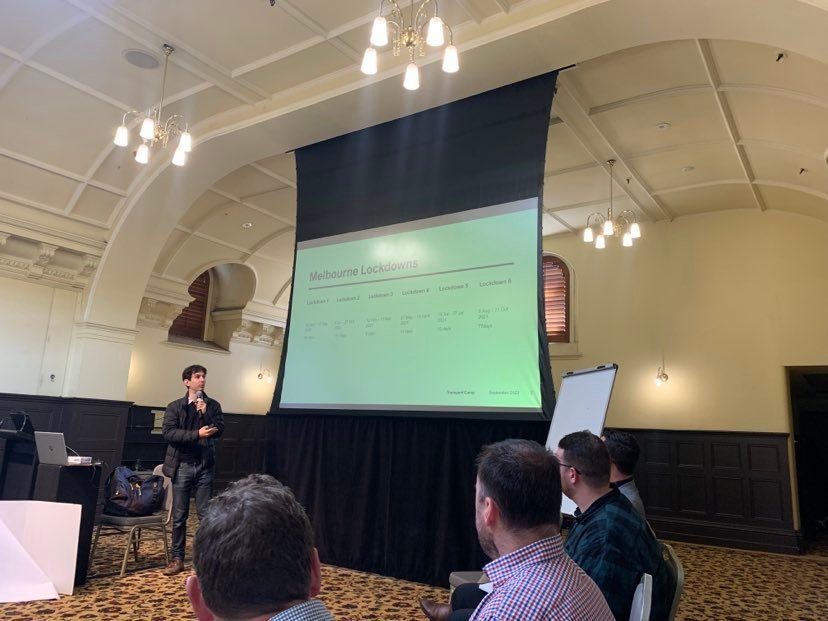Session: 3
Room: Supper Room
Session Title: Has Covid Killed Public Transport?
Format: Presentation
Presenter Name: Phillip Mallis (City of Yarra)
Summary
Covid has a significant decrease in PTV patronage. This is ongoing post-covid. Surprisingly, bus ridership has performed better. Consider the buses that service hospitals, and places of employment that cannot be completed by working from home.
Infrastructure Victoria outlined that CBD employment has decreased. WFH has increased working in suburban areas.
Trip purpose: Important to consider, however, the shortfall of the census is that it captures travel to work. The VISTA data set is more robust, and this is taken every 2 years.
During COVID, car transport increased for work, recreation, and services.
Cycling: The bike counters have shown LOWER bike use in 2022. In the lockdown, cycling ridership managed to remain consistent, which is impressive considering fewer people were commuting to work. With the overall drop in cycling volume from 2018-2022, we are returning to 2010 levels.
Challenges: There are blind spots in the data collection. Trip purpose is limited. The data is not consistent, symmetry is essential. The frequency needs to also be increased. The data also needs to be accessible, in a spreadsheet form, why is data presented in a pdf in 2022?
Data Gaps: We do not collate PTV crowding, vehicle crowding, tram patronage by line, or PTV journey purposes.
Classpass format: We need better options to purchase Myki use. A deal when you receive ten passes and it is cheaper. The people who least afford it cannot. New York has a weekly cap, this would incentivise. Weekly deals could really help shift from car dependency. Instead of annual deals, look for weekly. Off-peak transport is a great deal, but people did not really know about it, it needs to be communicated best.
The lack of tolerance for incomplete data has impacted the release of patronage data. Tense conversation! What happens when places do not have the resources to navigate the criticisms? We need a better picture of patronage and there are many behind the scene challenges that affect how data is circulated and presented.
Privacy concerns towards Governments collecting qualitative data.
How can we capitalise on the post-covid interest in getting back in the community. Should we encourage people to WFH or come into the office? Who gets to make these decisions?
The message needs to be spread, if we say nothing driving will continue to increase at default.
Congestion charging: Will this work, or will people continue to drive and accept the costs? Generally, individuals are resilient to change, therefore intense advocacy and education are essential.


